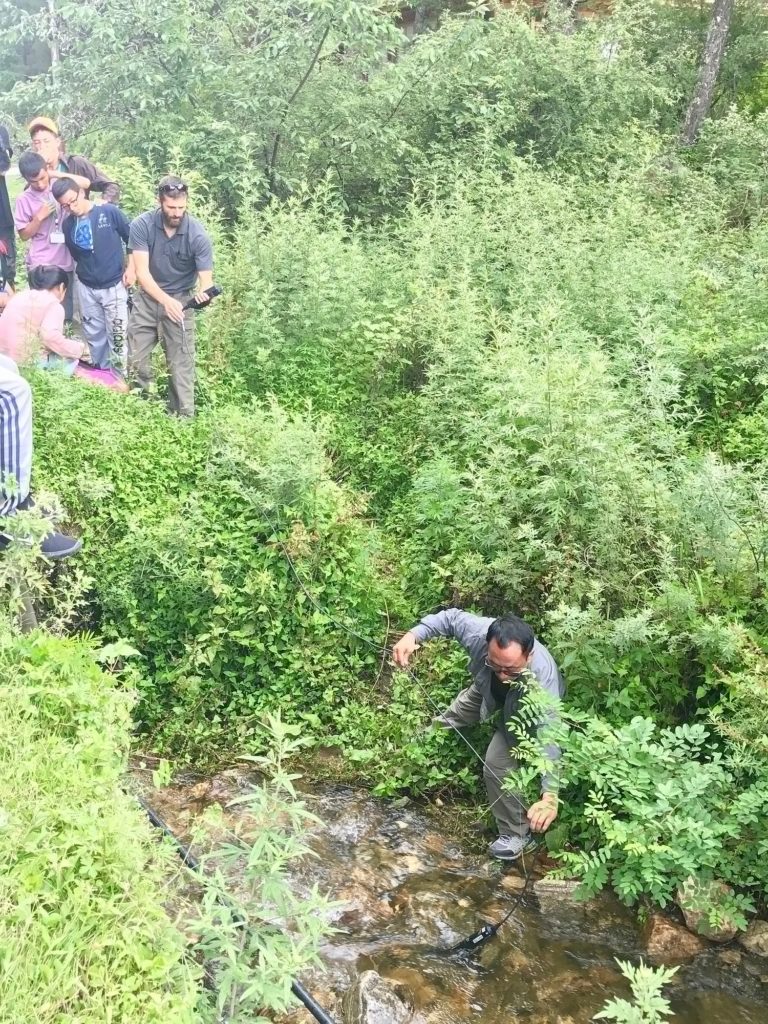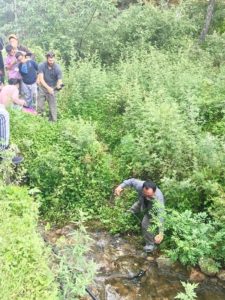
“Where we live must be clean, safe, organized, and beautiful, for national integrity, national pride, and for our bright future. This too is nation building.” – His Majesty, The King of Bhutan
The Kingdom of Bhutan possesses incredible natural resources like rushing waters, green forested land, and crisp mountain air. An ethic of natural resource stewardship resounds from the honorable Royal family, to the honorable Prime Minister, to Buddhist monks, to citizens across the land. Their constitution requires that at least 65% of the nation remain forested and the country is widely hailed as carbon negative. But even with the tremendous Bhutanese stewardship of these resources, water pollution problems can and will happen. Very recently, sewage and trash have contaminated the water supply for 1,000 households around the area of Ngabiphu. Moreover, the increasing levels of development in the country are setting the stage for additional water quality degradation.
However, over the past two years, led by the NGO Clean Bhutan and Waterkeeper Alliance’s Sharon Khan, the Waterkeeper movement is growing in Bhutan, including Wang Chu Waterkeeper and its Affiliates on the Ha Chu, Pa Chu, Upper Thimchu, and Lower Thimchu rivers. This month, our Waterkeeper Alliance team made its third visit to Bhutan to help support the growing Bhutanese network with water monitoring equipment and training.
The visit to Bhutan provided a compelling example of how science, education, law, and citizen action intersect to protect our communities and waterways. Science is needed to understand what is polluting the water and how polluted it is; law is needed to create and enforce standards to stop pollution; and, education is needed to help people understand how pollution affects them and how to prevent it. Bhutan has a good clean water law that was enacted in 2014, but it needs scientific data to help support policy and enforcement.

Along with Nedup Tshering, Founder and Director of Clean Bhutan, and Shristi Sharma, the new Wang Chu Waterkeeper, we took water samples at sites in Paro and around the capital city of Thimphu. Unfortunately, the Waterkeeper sampling team discovered the presence of E.coli in some of the water, indicating that it may not be safe for drinking or recreation and making front page news in the nation’s biggest newspaper. After receiving extensive training on using water quality monitoring equipment from Waterkeeper Alliance’s Christian Breen, the Bhutan Waterkeeper team will continue to sample waterways every other week. This will give them a greater understanding of current and future water quality conditions, allow them to notify government and the public when sampling results show pollution and safe waters and support water policy.
 On the legal and education front, we were honored to provide the first environmental law discussion and field training to the 25 students who make up the inaugural class of Bhutan’s very first law school. After discussing Waterkeeper Alliance’s history, Clean Bhutan’s new Waterkeeper endeavors, and the students’ views on water pollution, environmental law, and climate change, we engaged in a water monitoring field course.
On the legal and education front, we were honored to provide the first environmental law discussion and field training to the 25 students who make up the inaugural class of Bhutan’s very first law school. After discussing Waterkeeper Alliance’s history, Clean Bhutan’s new Waterkeeper endeavors, and the students’ views on water pollution, environmental law, and climate change, we engaged in a water monitoring field course.
During the law school visit, we noted that Bhutan is fortunate to have water resources that, for the most part, are nearly pristine. It is an enviable position to be able to look across borders and see how nearly all other countries have recklessly polluted their waterways and the tremendous public health, social, and financial costs they have incurred because of it. A strong combination of science, law and education helps avoid the pollution problems that have plagued so many others.
Despite the challenges presented by rapid development in the country, we are optimistic that the combination of a strong tradition of natural resource stewardship, coupled with a nascent water monitoring program, the Bhutanese Waterkeeper teams’ citizen action, and these budding young legal minds will ensure that Bhutan’s water supply will remain among the purest in the world. As one of the new law students remarked after the field training: “With the times changing, I feel that our water is changing every day. We – specifically me – were not concerned about it before. Before, water came out of the tap and we were happy. But now we know we need the data to ensure we develop the standards required to keep our drinking water clean.”